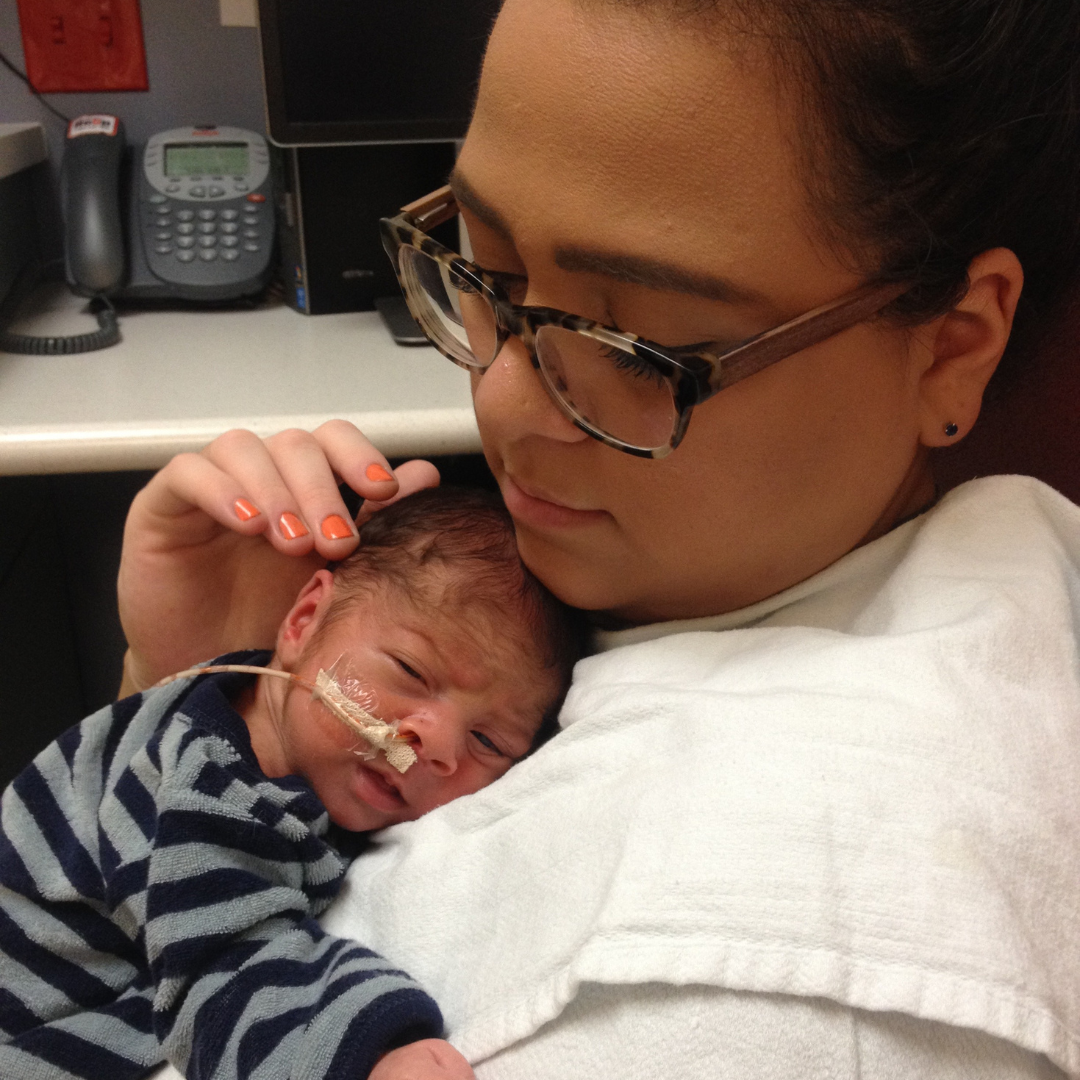NICU Basics
New to the NICU? Start here.
Having a baby in the neonatal intensive care unit can be overwhelming and frightening. You’re navigating new terms, new medical professionals, new sounds, and you’re unsure what will happen next. Here we’ll cover some of the most basic things you as a new parent need to know about the NICU.
What is the NICU?
The NICU, or Neonatal Intensive Care Unit, is an area of the hospital that provides specialized care for premature and sick newborns who require a higher level of care than a typical hospital nursery.
The NICU is staffed with highly trained medical professionals and is full of special equipment and technology necessary to care for medically fragile babies. Some NICUs are divided into bays that house multiple babies, and some are comprised of private rooms.
Why would a baby go to the NICU?
Most babies admitted to the NICU are born premature, meaning they were born before 37 weeks gestation, were born with low birth weight (weighing less than 5 pounds, 8 ounces), or have a health condition that requires special care. Other reasons a baby may go to the NICU may include:
- Respiratory distress
- Infection
- Seizures
- Low blood sugar (hypoglycemia)
- Need for extra oxygen or monitoring, IV (intravenous) therapy, or medicines
- Need for various special treatment or procedures
How Premature is My Baby?
Premature babies require different levels of care based on their gestational age at birth.
Extremely preterm: less than 28 weeks (micro preemie).
Very preterm: 28 to less than 32 weeks.
Moderate to late preterm: 32 to 37 weeks.
Source: World Health Organization
Calculating your baby’s adjusted age
Adjusted age or corrected age is how old your baby would be if they were born on their due date, rather than the day that they were actually born.
Because premature babies often need more time to grow and develop after they are born, your baby’s adjusted or corrected age is used to track their developmental milestones and help track the baby’s skills and behaviors in a number of different areas.
To find your baby’s adjusted age, first we have to calculate your baby’s prematurity. Subtract your baby’s gestational age, or how soon your baby was born after becoming pregnant, from what is considered a full-term pregnancy, or 40 weeks.
40 weeks — [gestational age] = Baby’s prematurity
For example, if your baby was born at 31 weeks gestation, you would calculate it like this:
40 weeks – 31 weeks = 9 weeks premature
Next, calculate your baby’s adjusted age by subtracting your baby’s current age from its prematurity.
[Baby’s age in weeks] — Prematurity in weeks = Current adjusted/corrected age
For example, if your baby is 12 weeks old, and they were born 9 weeks premature, then you would calculate:
12 weeks — 9 weeks = 3 weeks adjusted age.
Your baby is 3 weeks adjusted, or 3 weeks corrected.

